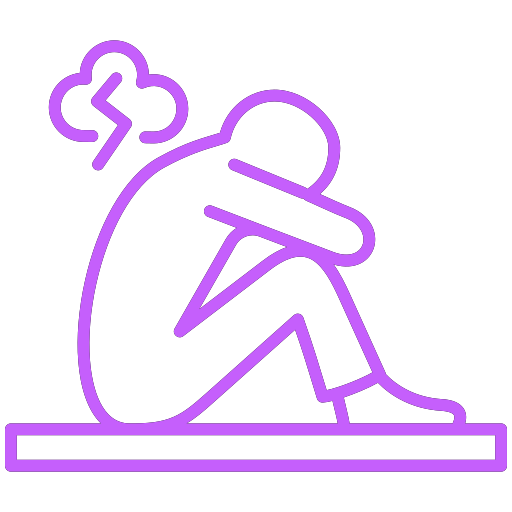Trauma
- Home
- Trauma
Trauma
Stressful events affect your emotional and mental health, and may overpower your coping mechanisms, interfering with your ability to manage daily life. At Alice MHS in Catonsville, Maryland, experienced mental health provider Alicia Scott-Darden, PMHNP-BC, offers mental health services, like supportive therapy and self-care, for people struggling to cope with trauma. For compassionate trauma treatment, call the office or book your appointment online today.

What causes trauma?
Trauma is the emotional pain that you experience after witnessing a painful or extremely negative event. It can also occur from long-term stress that’s unrelenting.Trauma could be caused by suffering a severe injury after an accident, being the victim of violence or sexual abuse, witnessing violence, losing a loved one, experiencing divorce, being the victim of a natural disaster, or other impactful circumstances or occurrences.Alicia MHS focuses on treating trauma patients with compassion and understanding, helping you build a new way forward.
What are some signs of trauma ?
There are many signs that you or someone you know may be suffering from trauma. Common symptoms of trauma include the following:

Withdrawal from everyday life and conversation

Anxiety and panic attacks

Emotional outbursts

Denial

Sadness and depression

Guilt or shame

Insomnia
Trauma can take many forms and can even lead to disorders. Common disorders that arise from trauma include post-traumatic stress disorder (PTSD) or reactive attachment disorder (RAD), which children can develop if they’re neglected.If you are experiencing these symptoms after suffering a traumatic event or injury, you may benefit from discussing your treatment options with Alica MHS. Your provider will advise you on which mental health treatments would be best for your situation.
How do you treat trauma ?
There are lifestyle changes you can try to help manage symptoms of trauma. These include talking to friends and family about your feelings, writing in a journal, joining a support group, or setting up a healthy, daily schedule that consists of a good diet and exercise.But sometimes these lifestyle changes aren’t enough, or it’s hard for trauma victims to make these changes on their own. If you experience a lack of control, severe depression, an obsession with a traumatic event, difficulty sleeping, and similar symptoms, it’s best to discuss your options with a professional.
PTSD can be severe, as can reactive attachment disorder. These disorders can be treated with cognitive-behavioral therapy (CBT) or eye movement desensitization and reprocessing (EMDR). EMDR combines CBT with rapid eye movements that your provider facilitates with a light-emitting device. This technique can help patients process traumatic events of the past.Alicia MHS has experience treating PTSD and trauma-related situations. Schedule a trauma evaluation by calling the office or booking online today.
